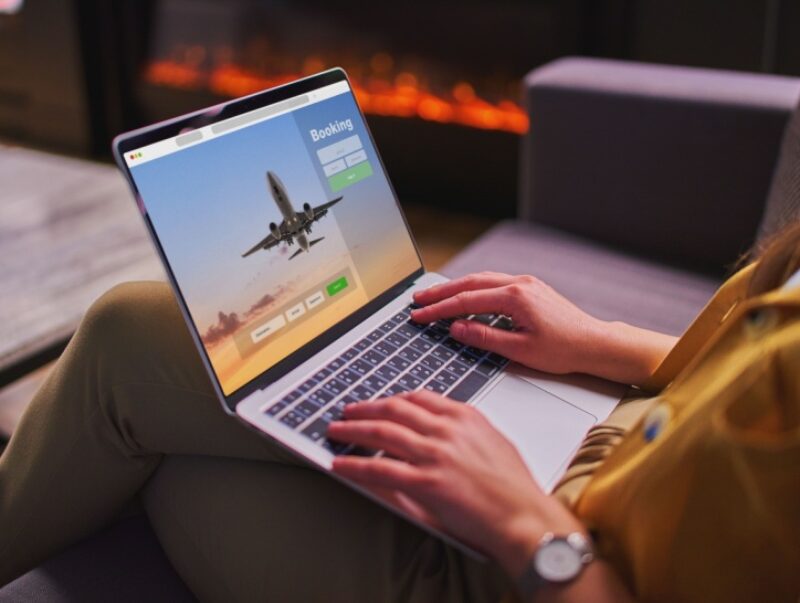When planning a trip, many people like to search around for the best deals. You might use flight and hotel comparison sites to compare prices, and perhaps book at the right time for a reduction.
However, it can be challenging to manage your budget when you’re hit by unexpected costs. This may be the case for anybody hoping to visit Venice in the future after a recent announcement that the city is introducing a “tourist tax”.
According to Lonely Planet, the city saw a staggering 30 million visitors in 2019 and often experiences problems with “over-tourism”, raising concerns about the damage caused by an influx of people. To combat this and generate funds to preserve the city, Venice introduced a daily charge of €5.
Venice isn’t the only place to charge a tourist tax and you’ll find a similar system in many places around the world.
These additional charges may seem small but can quickly add up. The tourist tax isn’t the only surprising expense that you might face when travelling, either.
Read on to learn about five hidden costs to be aware of when booking a trip.
1. Resort fees
A “resort fee”, sometimes called a “facility fee” or “amenity fee”, is an additional charge that some hotels and resorts add to the price of your room. It’s usually a daily charge that covers certain amenities including free Wi-Fi or use of the pool, which many hotels include as part of the standard room price.
According to Nerd Wallet, the average resort fee for hotels in the US in January 2023 was $42.41 a day, which was almost 11% of the overall nightly cost for a room. So, these fees could make your stay significantly more expensive.
Resort fees are often listed in the fine print or may be applied when you check in to the hotel. That’s why it’s important to read the listing carefully before booking.
2. Cleaning fees
The rise of holiday let sites such as Airbnb has given you more choice than ever about where to stay. You might prefer having an apartment to a hotel as it gives you more space to cook and entertain friends and family while you’re away. However, be aware that you could face hidden charges.
Many properties listed on Airbnb and similar sites now charge a “cleaning fee” that is separate from the cost of the stay. This means that the price advertised won’t necessarily be the final price once you book and pay.
While not as expensive as resort fees, Houst reports that the average Airbnb cleaning fee in the UK is £53.
Fortunately, you’ll find a breakdown of all charges during the booking process, so you can be clear about exactly what you’re paying for.
3. Airline baggage and seat fees
This is one you may be more familiar with, and it seems that airlines are adding more charges than ever before.
While the overall cost of air travel has fallen over the years, you may pay many additional fees for baggage and seat selection. In some cases, this could mean that airlines offering cheap deals are actually the most expensive option as they add more fees on top of the ticket price.
For example, the Independent reports that the lowest total price for a British Airways return flight from a London airport to Naples was £120. However, the total cost for “budget” airlines was:
- Jet2 – £198
- Ryanair – £132
- EasyJet – £126.
Unfortunately, comparison sites may only compare the base cost of the tickets. This could mean that you inadvertently purchase more expensive flights.
To avoid this, add up the total cost of the ticket including all charges when comparing prices.
4. Currency exchange fees
Before making your trip, you might want to consider how you’ll change your money to a new currency. Will you exchange cash before you go or do you plan to use a card to take money from an ATM while you’re there? If you’re withdrawing cash abroad, what kind of card are you using?
Typically, you’ll pay a fee each time you withdraw money, unless your bank offers free overseas transactions. You may also incur an extra cost when using a credit card to make purchases.
Fortunately, you might be able to use a pre-paid travel card that you can add money to and exchange into a different currency. These often have lower fees than a standard debit card for a UK bank account.
That said, the fees vary considerably between institutions, so you may want to do some research beforehand. Consider what fees your bank and credit card company charge and then compare this with popular pre-paid cards to find the most suitable option.
5. Data roaming charges
We rely on technology a lot in the modern world, and you may find your smartphone incredibly useful while travelling. You might use it to book taxis, find directions, search for local attractions, and stay in touch with people back home. However, it’s important to be aware of data roaming charges while abroad.
Many providers will charge significant fees if you want to use online services while overseas. You may have free roaming in the EU but it’s important to check before you go, and you’ll likely pay more if you travel outside of the EU.
You can potentially avoid charges by using local Wi-Fi wherever you can. Additionally, you might be able to purchase an add-on for using data in other countries, which could be cheaper than the standard charges.
These hidden travel costs can quickly add up and increase the overall cost of your trip. Fortunately, if you’re vigilant and plan ahead, you can avoid any surprise expenses.
 Investment
Investment Trustee
Trustee

